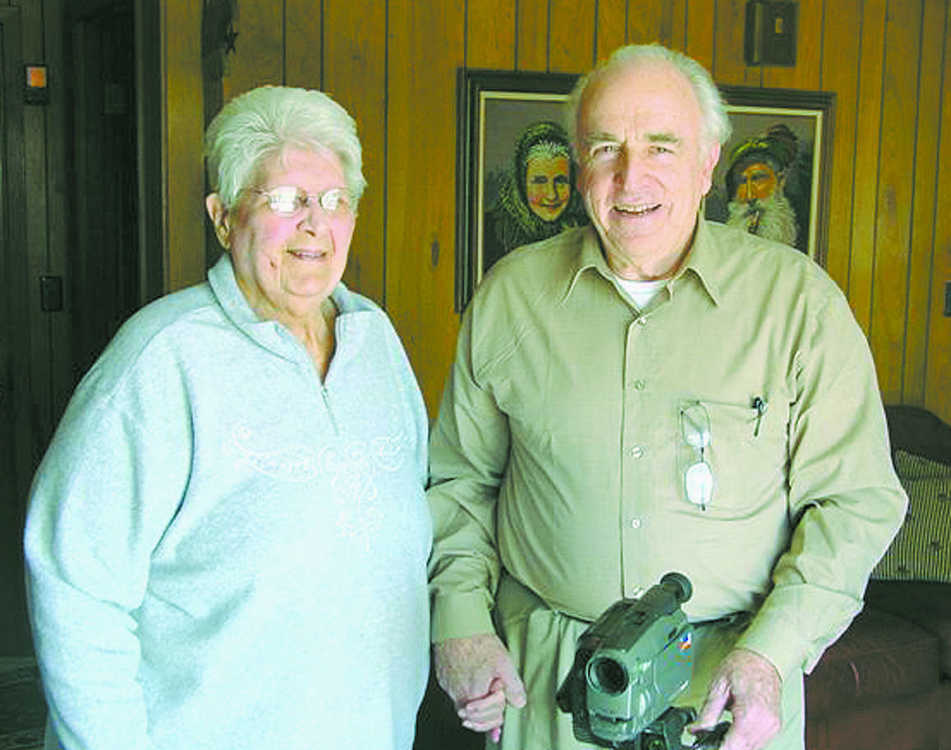Nevada woman makes history with the WAVES

On Sept. 30, 1942, 20-year-old Betty Turnbull Helms, with written permission from her parents, became a part of history when she enlisted in the U.S. Navy as one of the first enlisted women to serve in the WAVES.
Helms, now 86 years old, said that the Navy already had female officers, but this was the first group of enlisted women.
"The Army already had women, but I knew that the Navy would too, so I waited," she said, adding that her father had been in the Navy and her brother served in the Navy as a corpsman on a hospital ship.
Helms said that she and the other women in her group were sent to the University of Wisconsin-Madison for training.
"I learned to march on the Wisconsin football field," she said.
Helms, who grew up in a family of 10 children at Monroe City, enlisted in Washington, D.C. where she was staying with an uncle who was a guard at the State Department.
She said that the women were told to bring shoes with heels and toes and lisle stockings with them when they were sent for training. During World War II she said that many women's shoes were made with cut-outs for toes and at the heels to conserve leather for the war effort.
A couple of weeks after they arrived in Madison, Marshall Fields, a large Chicago department store which made the WAVES uniforms, arrived to fit them for their new uniforms.
She said they walked down a line and were given their new uniforms, piece-by-piece, and when they reached the final stop, they were handed a check for $300, which they gave to someone from Marshall Fields to pay for the uniform.
Helms said that she was one of the 25 or 30, of the 400 trainees, who could wear her uniform without any alterations and when they left the building in their new WAVE uniform, newsreel cameras were waiting to film them.
"My mother sat through a movie three times so she could see the news reel," Helms said.
While at Madison Helms was trained in Morse code to be a radioman, before being sent, with about 100 others from her group, to the Naval Air Station in Jacksonville, Fla., for the next three years. This was a training base for Navy pilots.
"We relieved men, for combat duty," she said.
Their job was to send and receive messages from Washington, D.C., aircraft and ships at sea.
"We got most of our news from Washington and copied news from 'WAR' on Morse code," she said. "WAR" was a military radio station.
Since the Air Station was a pilots training base pilots were often out flying around, and one night Helms said that she remembered copying a message from one pilot that read "Silver wings in the moonlight."
She said that she had no idea what it meant.
"He was just flying around at night," she said.
Helms said that housing at the base was a big change from civilian life. They were housed with four women to a room in two bunk beds, a chest of drawers, a closet and a basin. Each woman had one drawer for her own.
The shower room was an open room with showers on one side and toilets on the other side with no doors.
"It was a public place. You lost all of your dignity when you went in there. We soon got used to that. It was either that or nothing," she said.
Their work schedule rotated through a 24-hour period. When they first started they would work a day shift, an evening shift, a night shift and a day off; then start over again. After a couple of months of this schedule the Navy decided it did not work very well and changed it to two days on each shift.
"That was better," Helms said.
"It got to where you go to sleep at anytime, anywhere," she said.
She said that she still keeps in touch with the women she served with in the Navy and that 50 to 60 of the 100 who were assigned to the Naval Air Station with her are still alive.
"I treasure my time in the Navy," she said.
Like many other World War II veterans she also benefit from her experience.
"After serving time in the Navy, I was able to get a college education under the GI bill and that really changed my life," she said.
